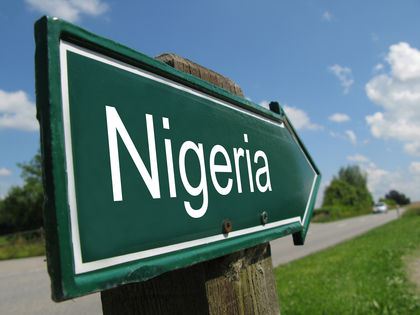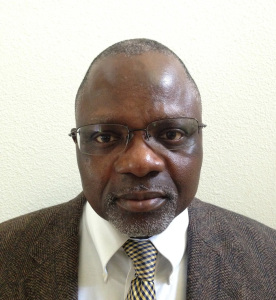(False Hopes or Unrealistic Expectations)
I have read with cautious optimism and shared enthusiasm the expressed yearnings of my fellow countrymen and women about what was accomplished at the recently concluded presidential and senatorial election. Nigerians have every reason to jubilate if for no other reason than bringing about the first transition of power from one democratically elected president to another of a rival political party. The fact that this election was considered relatively peaceful gives an added reason to celebrate that perhaps democracy has come to stay. Nigerians were determined to bring about a change in who governs them using the power of the ballot box, thus affirming one of the basic tenets of democracy, sovereignty of the people.
In the midst of the jubilation and expressed hopes that perhaps the wind of change that swept President-elect Buhari and his All Progressive Congress (APC) into power will bring with it an era of prosperity and discipline, a note of caution is in order. Nigerians should beware and be vigilant. The note of caution has nothing to do with the ability or sincerity of the President-elect and his erudite Vice-President-elect Osinbajo in stirring the ship of state in the right direction. After all, the President-elect has a fairly impressive credential based on his effort to instill societal discipline during his short stint as a military head of state.
Every Nigerian old enough to know when Buhari was in power would remember the severity of his approach to impose order on a lawless social structure in his war against indiscipline. That war to have its intended effect should have been directed not at the hapless masses but on the governing class. Unfortunately, his administration’s tenure was short-lived before the change he tried to instill on the masses could take hold. Even if he had had an elongated tenure in office, many of us did not believe that his approach was sustainable, except under a military dictatorship, especially when the focus of his action was not against those who perpetrated the prevailing environment of lawlessness, i.e., members of the ruling class. His intent was noble, but the approach was incomprehensible.
The well established process of social evolution which requires political education and exemplary leadership was abandoned in favor of trying to instill mass behavioral change with the use of “koboko”, (a whip), by agents who themselves were undisciplined. His approach though crude, was bold and different, and like anything new, Nigerians celebrated and embraced it, albeit for a short while. What Nigerians needed then and are yearning for now, is pure and unadulterated observance of the rule of law by those entrusted with the power of leadership. As the saying goes, the speed of the leader determines the rate of the pack. When those in position of power subject themselves to the rule of law, the masses will have no choice but to follow. Uniform enforcement of the rule of law without fear or favor, and with no regard to exalted political or social status will go a long way to ridding our society of the twin ills of indiscipline and corruption. Remove these two social ills and watch Nigeria soar to a new height.
The President-elect has an excellent track record as demonstrated by his disciplined and austere lifestyle unlike the lavish and ostentatious style of his contemporaries. This should bode well for him as he is already reputed as a man walking his talk. Perhaps this is part of the excitement about his ascension to power. His commitment to moving the country in the right direction is unquestionable. Rather, our concern stems from the awareness that a tree does not a forest make. He is one among equals when his executive powers are viewed within the context of the checks and balances of the legislative and judicial branches. Let’s keep in mind that although the office of the President wields enormous power, the President-elect upon assumption of office will not have the power of ultimatum that was afforded him by military decrees during his first tour at the helm. This time, he will have to navigate the rulemaking and log rolling compromises that is the political process.
Additionally, even within his own political party are people of unsavory character and ineptitude as demonstrated by their public record of performance. I don’t think anyone believes that darning the cloak of APC can be expected to have a transformative power on those whose primary agenda is self-enrichment at the public expense. The major battleground for the President-elect will invariably be within members of his own party and those he surrounds himself with. Many might be coming with the expectation to enrich themselves in the pattern of those who preceded them. The President-elect and his vice must set the tone from the onset and demonstrate that there is a new Sheriff in town; that this time, the laws will be enforced for the good of all.
There are ways that the President-elect could demonstrate the seriousness of his pronouncements. He could in his maiden address to the nation, upon assumption of office, offer to reduce his own salary by 20 percent and challenge all federal legislators and state governors to do the same. This will be a good starting point especially for a government that spends the lion shares of its annual budget on recurrent expenditures, with little or nothing left for capital improvement program. The President-elect upon assumption of office could also require all presidential appointees to submit a letter of resignation in advance of their resumption of office. This can serve as a motivation for all concerned that there will be no excuse for nonperformance.
If Nigeria is to turn the corner in the right direction, the rule of law must take center stage. The myriads of problems that have plagued us, from incessant embezzlement of public funds and contracting shenanigans, to the disintegration of the nation’s educational system, and from armed highway robbery to Boko Haram, to crude and refined oil theft, all stemmed from the absence of the rule of law. As the President-elect rightly pointed out in his acceptance speech, nobody should be too big to be above the law, or too small not to be protected by it. Corruption in Nigeria cannot be eradicated until there is unyielding determination and commitment to enforcement of the rule of law without fear or favor.
The recent elections have clearly demonstrated the yearnings of Nigerians for a change. Change for the better. But voting for a change is just the beginning of the people’s responsibility in a democracy. Now more than ever, it is imperative for the people at every level to become actively involved in the affairs and activities of those elected to serve them. From the schoolhouse meetings to the local government councils and the hall of congress, Nigerians must collectively and through all available mediums become engaged in what their representatives do and how the national resources are being expended. Anything left to itselfwill inevitably decay. These newly elected officials at every level of government cannot and must not be left alone. To do so is to give them the opportunity to err on the side of self-interest. The feet of our elected officials must be put to the fire and demands placed upon them to put forth their best efforts to perform the duties of the offices to which they have been elected for the good of all. Leadership is about service and it is high time Nigerians demanded that of our elected officials.
Whether or not the increased enthusiasm of the vote for change and the hope for the future is false or unrealistic will depend on the collective role that Nigerians are willing to play. President-elect Buhari and his vice cannot alone do all that needs to be done. The President-elect’s determination to succeed where others have failed must be fueled by our level of commitment to change through the fundamental rule of law and holding responsible those elected to govern. For the sake of emphasis, Buhari will succeed only when we hold accountable those elected to serve and insist without compromise on the rule of law. The change we desire is attainable when we do our part and insist on the politicians to do their jobs transparently in plain view of a watching and vigilant electorate. I have no doubt that Nigeria can attain new heights in four short years if we are willing to marshal our collective energy and ingenuity behind the man we have elected to lead the change crusade. The time for us to move is now. The better future we seek can be made manifest by the grace of God and our collective action. That expectant future awaits our collective action today.
Should we fail to do our part, not even Buhari, or his APC, which shares the same acronym as the popular pain medication when I was a child, will be able to cure the cancerous migraine that the nation currently suffers from years of endemic and systemic corruption in the hands of her elected officials. We pray for a time of refreshing from the Lord for our country. May that time of refreshing come soon to stay.
Ayo M. Akingbemi, Ph.D.










One of the root causes of insecurity in Nigeria is high unemployment. The unemployment crisis will not be solved unless Nigerians make sacrifices to drastically cut down the expenditure of seventy percent of the national revenue on salary and benefits. As suggested in this article, the President-elect should take the lead by cutting his pay and the outrageous allocations to the presidency. The Nigerian senate and the house of representative should follow that lead and the Nigerian civil servants should be prepared to do the same.
The revenue accruing from oil sales on the world market is not going to increase anytime soon and it is imperative that alternative sources of revenue need to be urgently developed. It is disheartening to read that the Nigerian Government will have to borrow to pay civil servants in the twenty-first century. Have we forgotten about the debt burden of the 1980s and 1990s?